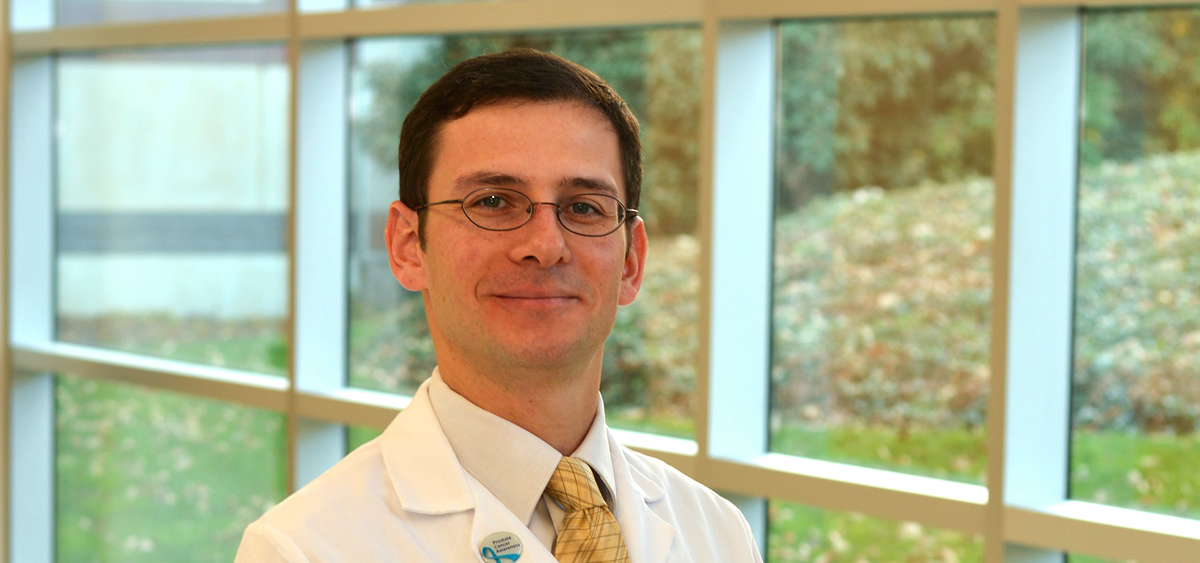Weather Alert: Following the winter storm, all Temple Health hospitals, campuses and clinical locations remain open, though some appointments or services may be adjusted. Patients will be contacted directly if their visit is affected. Please check TempleHealth.org or FoxChase.org for updates and monitor myTempleHealth for changes to scheduled appointments.
Breadcrumb
- Home
- Fox Chase Cancer Center News
- Improved Understanding of Renal Cell Cancer Mutations and Identification of Biomarkers May Inform Future Treatment Options
Improved Understanding of Renal Cell Cancer Mutations and Identification of Biomarkers May Inform Future Treatment Options

PHILADELPHIA (January 15, 2019) — While renal cell cancer (RCC) treatments have improved as researchers gained a deeper understanding of the disease’s genetics and genomics, there is an opportunity to make a greater difference by identifying biomarkers and mutations that will help oncologists select the most effective treatments for individual patients, according to a recent paper by Daniel M. Geynisman, MD, Fox Chase Cancer Center.
The review article, entitled, “Mutations in renal cell carcinoma,” was published in the November 2018 edition of Urologic Oncology: Seminars and Original Investigations. Phillip Abbosh, MD, PhD, assistant professor in the Molecular Therapeutics Program, and Christopher D'Avella, MD, a hematology/oncology fellow at Fox Chase, contributed to the paper.
“There have been many strides in treating RCC but future studies should explore linking genetics to prognosis, resistance to targeted therapies, and the identification of future therapeutic targets,” said Geynisman.
In the past, RCC treatments were limited, and had a high-toxicity profile and low response rate. However, targeted therapy and immunotherapy options are now available because of the increased understanding of the molecular basis of RCC.
The paper listed several highlights found in RCC molecular research:
- Frequent inactivation of the Von Hippel Lindau gene in ccRCC led to the development of vascular endothelial growth factor and mammalian target of rapamycin inhibitors.
- Genomic sequencing of ccRCC tumors identified other common mutations such as BAP-1, PBRM1, SETD2, and PIK3CA.
- Papillary RCC has shown a high level of mutations in the MET gene, and early clinical data suggests the utility of MET targeted therapy.
- Rarer sarcomatoid tumors show mutations in TP53 and NF2 that may be important to their development.
RCC comprises 80-85 percent of all renal neoplasms, and is estimated to represent 3.8 percent of all new cancer diagnoses in the United States. In 2017, there were 63,990 new cases of RCC and 14,400 deaths from the disease. The most common form of RCC is clear cell RCC (ccRCC), followed by papillary RCC and chromophobe RCC subtypes.
Fox Chase Cancer Center (Fox Chase), which includes the Institute for Cancer Research and the American Oncologic Hospital and is a part of Temple Health, is one of the leading comprehensive cancer centers in the United States. Founded in 1904 in Philadelphia as one of the nation’s first cancer hospitals, Fox Chase was also among the first institutions to be designated a National Cancer Institute Comprehensive Cancer Center in 1974. Fox Chase is also one of just 10 members of the Alliance of Dedicated Cancer Centers. Fox Chase researchers have won the highest awards in their fields, including two Nobel Prizes. Fox Chase physicians are also routinely recognized in national rankings, and the Center’s nursing program has received the Magnet recognition for excellence six consecutive times. Today, Fox Chase conducts a broad array of nationally competitive basic, translational, and clinical research, with special programs in cancer prevention, detection, survivorship, and community outreach. It is the policy of Fox Chase Cancer Center that there shall be no exclusion from, or participation in, and no one denied the benefits of, the delivery of quality medical care on the basis of race, ethnicity, religion, sexual orientation, gender, gender identity/expression, disability, age, ancestry, color, national origin, physical ability, level of education, or source of payment.
For more information, call 888-369-2427